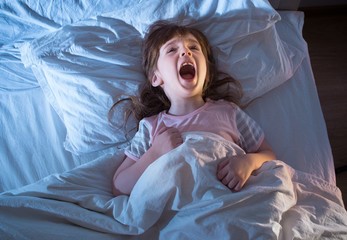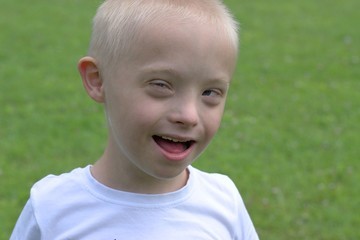Table of Contents
Pediatric sleep apnea: Sleep Apnea Symptoms in Kids
Pediatric sleep apnea is a sleep disorder where your child’s breathing is selectively or completely blocked repeatedly during sleep. The condition is caused by narrowing or blockage of the upper airway during sleep.
There are disparities between pediatric obstructive sleep apnea and adult sleep apnea. While adults typically have daytime sleepiness, children are more likely to have behavioral issues. The underlying cause in adults is mostly obesity, while in children, the most prevalent underlying condition is the enlargement of the adenoids and tonsils.
Initial diagnosis and treatment are essential to prevent complications that can affect children’s growth, cognitive development, and behavior.
Symptoms
 When asleep, signs and symptoms of pediatric sleep apnea might include:
When asleep, signs and symptoms of pediatric sleep apnea might include:
- Snoring
- Pauses in breathing
- Restless sleep
- Gasping, coughing or choking
- Mouth breathing
- Bedwetting
- Nightmares
Infants and young children with obstructive sleep apnea don’t often snore. They might just have disrupted sleep.
During the day, children with sleep apnea might:
- Perform below average in school
- Have a hard time paying attention
- Have learning problems
- Have behavioral problems
- Have poor weight gain
- Be hyperactive
When to see a doctor
Schedule an appointment with your child’s doctor if your child continuously wakes up in the morning feeling tired and has behavioral problems.
Causes
Obesity is a prevalent factor causing underlying obstructive sleep apnea in adults. But in children, the most common condition leading to obstructive sleep apnea is oversized tonsils and adenoids. However, obesity also can contribute to children. Other underlying causes can be craniofacial anomalies and neuromuscular disorders.
Risk factors
 Besides obesity, other risk factors for pediatric sleep apnea include:
Besides obesity, other risk factors for pediatric sleep apnea include:
- Down syndrome
- Abnormal skull or face
- Cerebral palsy
- Sickle cell disease
- Neuromuscular disease
- History of low birth weight
- Family history of obstructive sleep apnea
Complications
Pediatric obstructive sleep apnea can have significant complications, including:
- Stunted growth
- Heart problems
- Death



 Shop
Shop



